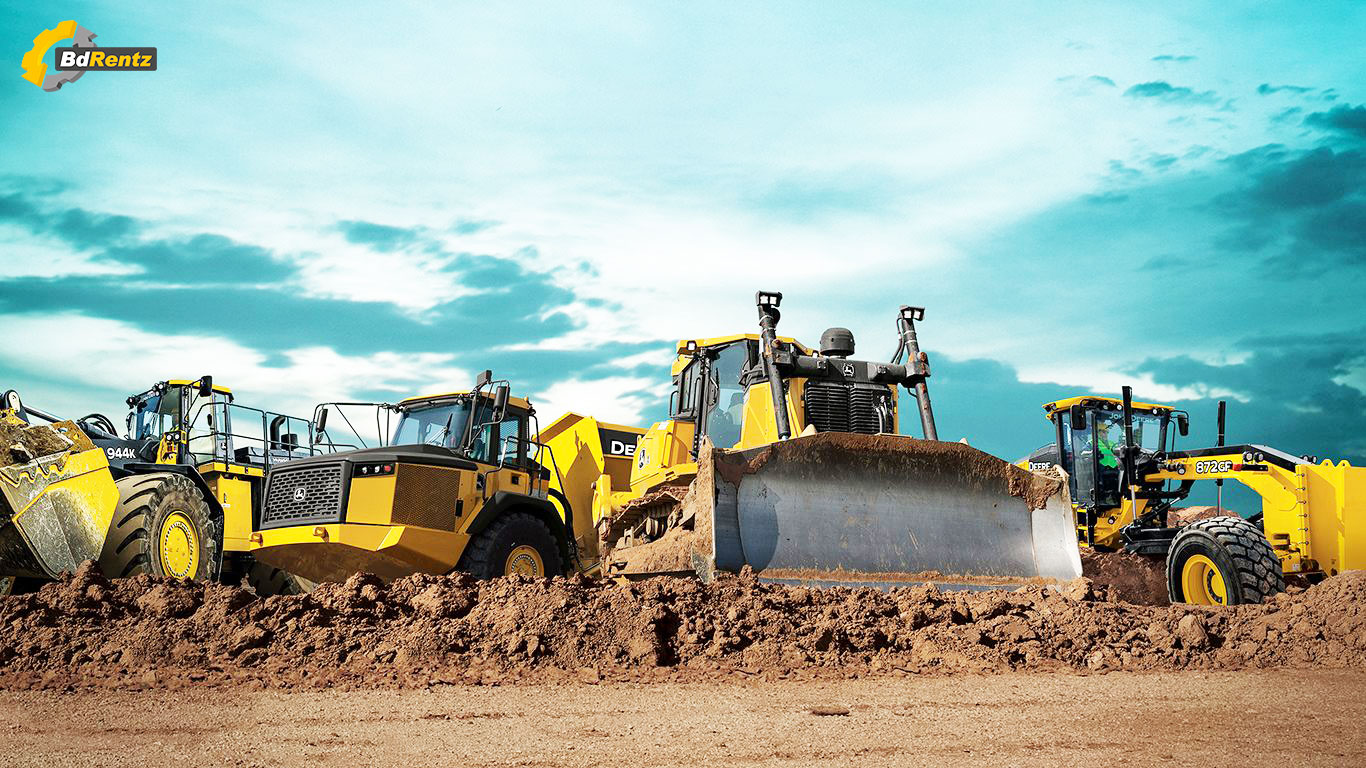Mini Excavator Rental: Compact Machines for Limited Spaces
Mini Excavator Rental: Compact Machines for Limited Spaces
Blog Article
Optimize Your Spending Plan by Understanding the Prices Connected With Construction Equipment Rentals
Recognizing the complete range of prices connected with building tools leasings is important for optimizing your budget plan. What methods can be employed to properly manage these expenses and guarantee a more efficient rental experience?
Summary of Rental Expenses
When thinking about building tools rentals, recognizing the connected prices is extremely important for reliable budgeting and task preparation. Rental expenses can differ considerably based upon numerous aspects, consisting of tools kind, duration of rental, and location. The preliminary rental charge often shows the equipment's market need and its linked functional capacities, affecting the total expenditure.
Along with the base rental rate, supplementary prices might emerge, such as transport charges, gas additional charges, and upkeep costs. It is vital to make up these additional expenses to properly examine the total price of leasing equipment. Additionally, the rental period can influence pricing; longer services may get approved for reduced prices, while short-term leasings may incur greater daily charges.

Breakdown of Rental Prices
A thorough understanding of rental rates is crucial for professionals and job managers aiming to enhance their budgets. Rental rates for building and construction equipment typically include numerous components, consisting of base prices, time-based charges, and use charges.
Base rates are the core fees connected with the leasing of the tools, typically determined by the type and size of the machinery. These rates can differ dramatically, affected by elements such as equipment demand, schedule, and regional market fads. Time-based costs, which may be daily, weekly, or monthly, serve to fit various task timelines and rental periods.
In addition, rental prices may consist of use costs, which are appropriate when equipment is made use of past a specified threshold, making certain that the rental business can represent damage. Seasonal demand fluctuations can additionally influence rental rates, with peak building and construction periods normally regulating higher rates.
In addition, recognizing the rental company's policies regarding upkeep and insurance can provide additional insight into the overall price structure. By assessing these components, service providers can make informed decisions, making certain the option of rental equipment lines up with both job needs and budget plan constraints.
Added Costs to Consider
Recognizing the ins and outs of added fees is critical for service providers to handle their total leasing expenses properly. Past the standard rental prices, various supplemental charges can substantially impact the overall price of equipment service. These fees commonly consist of delivery and pickup charges, which can differ based upon range and logistics associated with delivering the equipment her response to and from the job site.
Moreover, some rental companies may impose fuel surcharges if the tools is returned with less gas than when leased. It is also important to know prospective cleaning charges, specifically for specific devices that requires complete upkeep after use.

Thoroughly evaluating the rental arrangement and making clear these additional charges in advance can help professionals make certain and stay clear of unanticipated expenses that budgets stay intact throughout the job lifecycle.
Upkeep and Repair Costs
Routine repair and maintenance expenditures are frequently forgotten factors that can significantly affect the total cost of building devices leasings. When leasing tools, it is vital to take into consideration not only the rental costs but additionally the potential costs linked with keeping the equipment in optimal operating problem.
Many rental companies include basic upkeep as component of the rental arrangement; nonetheless, extra considerable repair services or unexpected malfunctions can cause additional costs. It's vital to assess the rental agreement very carefully to understand what maintenance solutions are covered and what duties fall on the occupant.
Additionally, equipment that is not well-kept can result in inefficiencies on duty website, potentially creating hold-ups and raising task prices. To minimize these risks, it is advisable to conduct regular evaluations and preserve open communication with the rental copyright relating to any issues that emerge during use.
Insurance Policy and Liability Expenses
Insurance and liability expenses are critical visit our website elements that can considerably influence the overall expenditure of construction tools services (rental company near me). These expenses make certain that both the rental business and the client are safeguarded from prospective financial losses arising from mishaps, damage, or theft throughout the rental duration

Additionally, clients ought to understand any kind of deductibles or exemptions in the insurance plan, as these can impact prospective out-of-pocket costs. Understanding the terms of any insurance coverage is crucial to avoid unforeseen costs. Inevitably, budgeting for insurance and obligation expenditures can aid make certain a smoother rental experience and safeguard against financial threats related to building and construction projects.
Final Thought
In conclusion, a comprehensive understanding of the prices related to building devices rentals is vital for effective spending plan monitoring. By evaluating rental rates, added costs, maintenance costs, and insurance demands, people and organizations can decrease unforeseen expenses. This critical method not only improves cost-effectiveness yet also guarantees that projects progress smoothly and effectively. Eventually, educated decision-making relating to tools rentals contributes to the total success of building endeavors.
Rental expenses can differ significantly based on numerous factors, consisting of devices kind, period of leasing, and location (heavy equipment rental). The rental period can influence prices; longer leasings might qualify for affordable rates, while short-term services may incur higher everyday costs
By performing extensive study and engaging with respectable rental firms, service view providers can properly navigate the complexities of rental pricing, ultimately maximizing their financial sources.
Beyond the typical rental rates, different supplementary fees can significantly influence the overall cost of devices leasing. Rental companies commonly give obligation insurance that covers injuries to 3rd events or damages to residential property, while tools damages insurance coverage can cover the cost of fixings or substitute if the rented tools is damaged.
Report this page